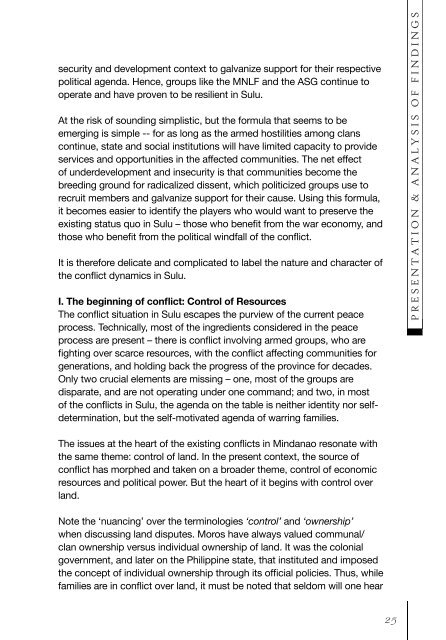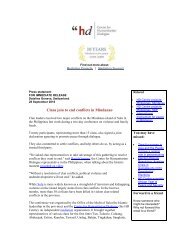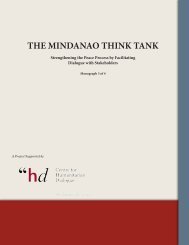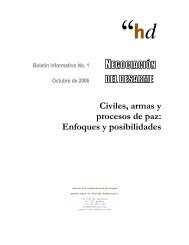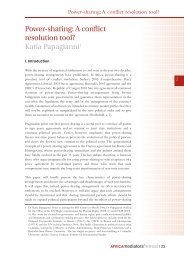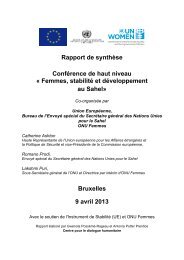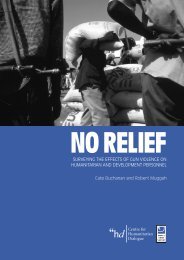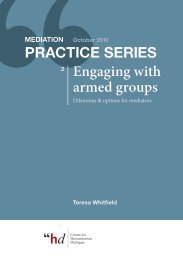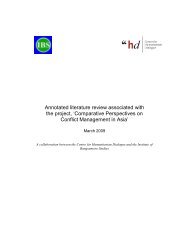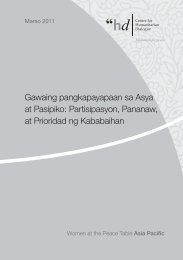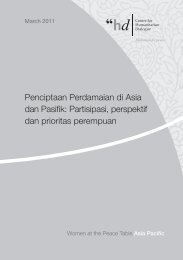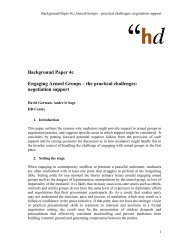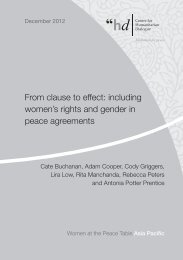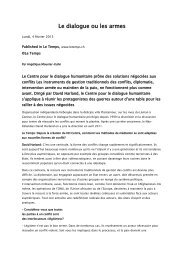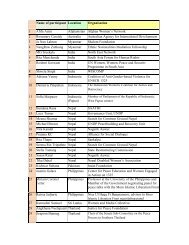Pagpati'ut - Centre for Humanitarian Dialogue
Pagpati'ut - Centre for Humanitarian Dialogue
Pagpati'ut - Centre for Humanitarian Dialogue
Create successful ePaper yourself
Turn your PDF publications into a flip-book with our unique Google optimized e-Paper software.
security and development context to galvanize support <strong>for</strong> their respective<br />
political agenda. Hence, groups like the MNLF and the ASG continue to<br />
operate and have proven to be resilient in Sulu.<br />
At the risk of sounding simplistic, but the <strong>for</strong>mula that seems to be<br />
emerging is simple -- <strong>for</strong> as long as the armed hostilities among clans<br />
continue, state and social institutions will have limited capacity to provide<br />
services and opportunities in the affected communities. The net effect<br />
of underdevelopment and insecurity is that communities become the<br />
breeding ground <strong>for</strong> radicalized dissent, which politicized groups use to<br />
recruit members and galvanize support <strong>for</strong> their cause. Using this <strong>for</strong>mula,<br />
it becomes easier to identify the players who would want to preserve the<br />
<br />
<br />
It is there<strong>for</strong>e delicate and complicated to label the nature and character of<br />
<br />
<br />
<br />
process. Technically, most of the ingredients considered in the peace<br />
<br />
<br />
generations, and holding back the progress of the province <strong>for</strong> decades.<br />
Only two crucial elements are missing – one, most of the groups are<br />
disparate, and are not operating under one command; and two, in most<br />
<br />
determination, but the self-motivated agenda of warring families.<br />
P R E S E N T A T I O N & A N A L Y S I S O F F I N D I N G S<br />
<br />
<br />
<br />
resources and political power. But the heart of it begins with control over<br />
land.<br />
Note the ‘nuancing’ over the terminologies ‘control’ and ‘ownership’<br />
when discussing land disputes. Moros have always valued communal/<br />
clan ownership versus individual ownership of land. It was the colonial<br />
government, and later on the Philippine state, that instituted and imposed<br />
<br />
<br />
25


